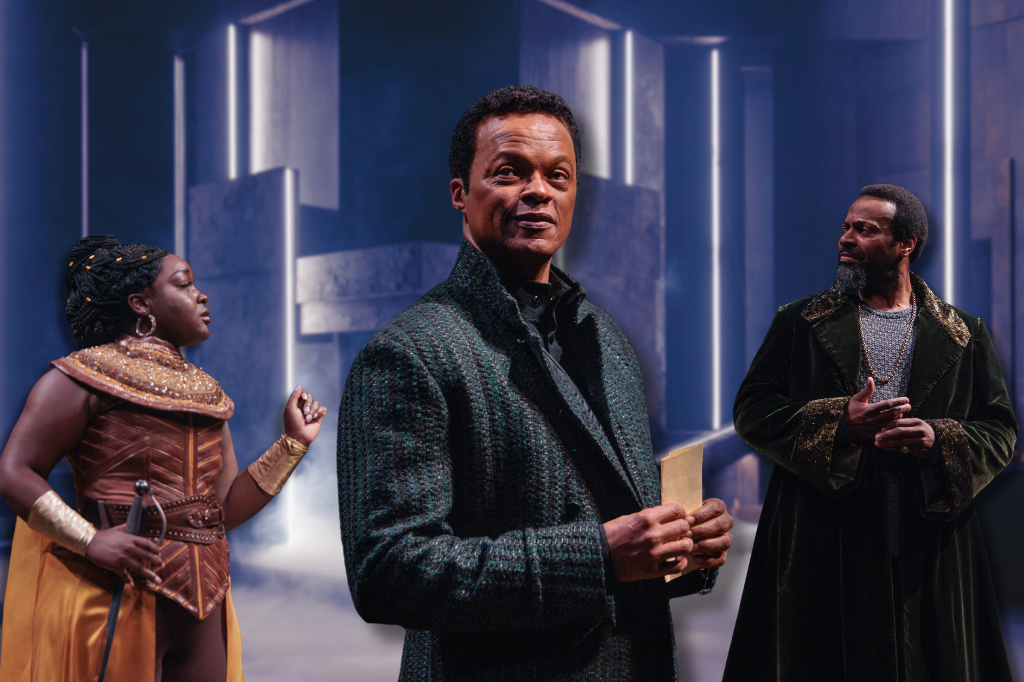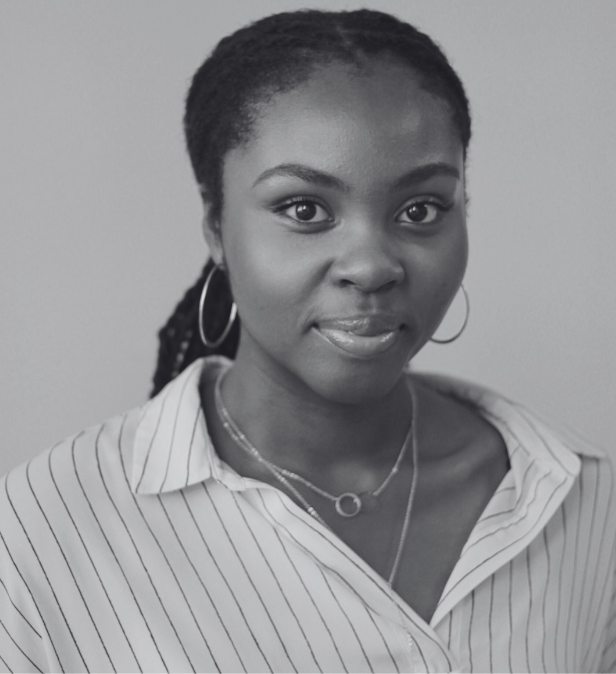A love letter to three Black performers in King Lear at the Stratford Festival
Dear Déjah, André, and Michael,
I write you this letter to express my sheer gratitude and adoration for your work in King Lear, and for your presence on stage at the Stratford Festival as a whole.
This July, I had the opportunity to participate in an IBPOC Critics Lab with Intermission Magazine and the Stratford Festival, which introduced a group of eight artists to the world of Canadian theatre criticism. This opportunity took place virtually over June and July and concluded with a week-long stay in Stratford to watch six productions and hold discussions within our cohort and with Stratford Company members.
On July 5, we watched King Lear and after reflecting on my experience watching the show, I felt the need to respond — to you three specifically.
As an emerging Black theatre artist, I was enamored by each of you — by your unwavering performances, and by your willingness to open up your hearts and bodies to predominantly white audiences night after night. I would like to take this opportunity to remind you that even when you can’t hear us or see us in the front rows of your performances, your skin-folk are here — watching and admiring your work, so excited that you are here too.
To Déjah Dixon-Green: your portrayal of Regan is a performance to behold. I was awakened by the unending freshness and vitality you bring to the role. With a story that has the potential to become quite heavy and numbing, you bring an exuberance and excitement to your character that honestly made me root for Regan in every scene she’s in. And this remained the case, even when her ambitions crossed who might be considered the protagonist in the story; but for me, Regan was the protagonist in all her scenes. Watching you carry this character of regal status with ease made me chuckle at the thought of anyone who would dare to question or second guess if you were born with a crown on your head, or even dare to question that you were born for the role that you’re playing. The way that you are able to claim a playing space even when you’re not speaking is enchanting. Thank you for reminding me to do the same — to never shy away from a spotlight.
To André Sills: your embodiment of Edgar and his disguise as Poor Tom had me sitting in awe of your range! My gosh. To watch you switch back and forth between Poor Tom’s antics and Edgar’s asides multiple times in one scene, so clearly that we the audience could never get confused, was so exciting to watch, nerve-wracking even. There were many moments when I caught myself so deeply invested in Edgar’s wellbeing and the redemption of his socio-economical demise. The way your voice can fill a room is remarkable. The sheer power in your vocal presence alone could make for an entertaining show even if I had my eyes closed. Also, there was something about your performance that felt so Black to me. Between the durag on your head and the Caribbean accent sneaking in at times, I felt so seen. If it was socially acceptable for me to start hooting and hollering and clapping and carrying on in a quiet theatre, I would’ve done so at that very moment. Although subtle, it changed everything I thought I knew about performing Shakespeare. At one point while you were performing, about halfway through the show, I suddenly realized that I had read King Lear in my high school English class — but I had never understood the text until now, perhaps six or seven years later. Thank you for that much needed closure, and for bringing new yet familiar life to Shakespeare.
And to Michael Blake: watching your performance as Edmund made me realize how much of a fan I am and have been of you. Your ability to bring such levity to a dark story and clarity to a dense text should be studied. In fact, earlier this year, I studied your performance as Othello from the STRATFEST@HOME recording as I took on the massive feat of playing Portia in Kaitlyn Riordan’s Portia’s Julius Caesar at the University of Waterloo this past March. I noted and admired, both from Othello and King Lear, how you are consistently able to bring so much meaning to a text that can often be so confusing to absorb as an audience. Watching how you make the text a part of your body — the very way that you breathe into your character. Every word you utter isn’t noise but truly informs how you enter, exit, and interact in a scene, by yourself and with others. Even if everything else is unclear to me, your character ambitions, motivations, and personality is always clear to me. I honestly did not realize how big of a fan I was of you, until I was sitting four feet away from you, in the greenroom one afternoon during our stay in Stratford this summer. There you were. The man who helped me to understand how to make Shakespeare make sense to any audience, from a video on my laptop. And being able to watch your work live, was a game-changer. Thank you for the work that you do and for being an artist whom I can shape my craft after.
To each of you: being given the privilege to observe your craft and your personhood is something I will take with me for a long time. There was something truly magnetic about each of your performances. I simply could not take my eyes off of you — and I didn’t want to, at the risk of missing something completely brilliant. You were the show for me. It was so easy to get lost in the adventure of the stories and lives you presented, while simultaneously finding a part of myself. Thank you each for being so dedicated to your craft and for always acting to the person in the very back of the theatre.
Though at times, I may have felt alone, out of place, or too othered to feel comfortable in those Festival Theatre seats, I am so grateful to have looked up and seen you. I felt safe because you were there too.
I hope to see you again soon.
Sincerely,
Emily Radcliffe










Comments